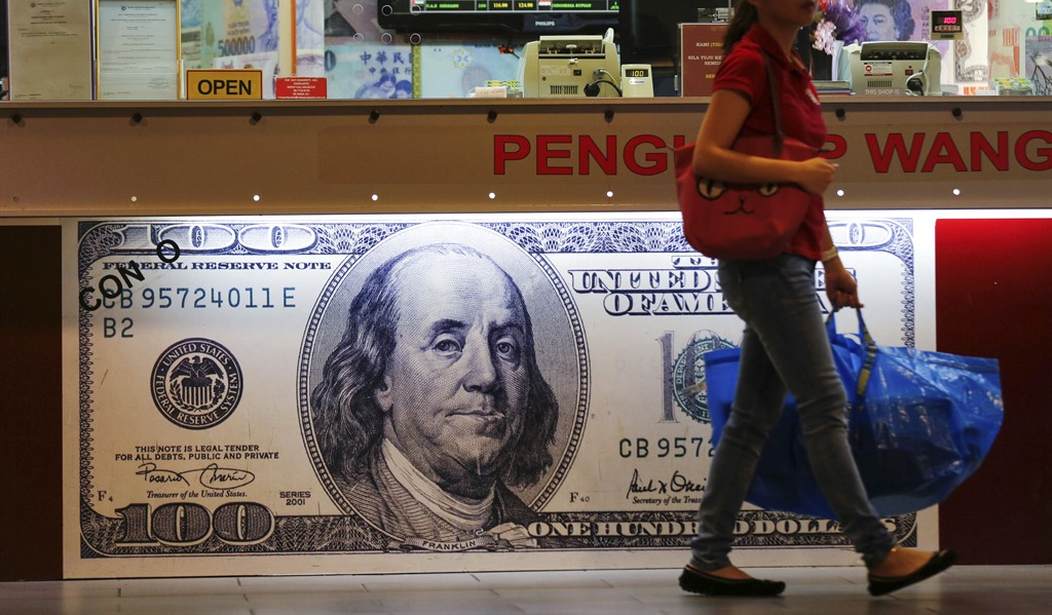Fentanyl gets manufactured by Mexican drug cartels and then transported over the US border where it eventually results in tens of thousands of overdose deaths per year. But the precursor chemicals used to produce all of that fentanyl isn't produced in Mexico. It comes from China.
Not only has China brushed off repeated US demands that it crack down on the sale of these chemicals, but we learned a few months ago that China's government is still subsidizing them. This comes from a House committee report that looked into it.
As part of our investigation, the Select Committee obtained materials showing that, as far back as 2018, the PRC central government’s Value-Added Tax (VAT) rebate system incentivized the export of at least 17 illegal narcotics that are Schedule I controlled substances and have no legitimate purpose. This includes 14 fentanyl analogues...
The PRC also continues to subsidize 13 other illegal drugs with no known legitimate purpose, such as PCP (“angel dust”), MDMA, illicit amphetamines, cathinones, and synthetic cannabinoids.viii All of these illegal synthetic narcotics receive a full tax rebate, the maximum potential subsidy under this system.
Bottom line, China is happy to profit off of chemicals that kill Americans. And it turns out China isn't just profiting off the front end of this deadly business, it is also helping the Mexican cartels launder their dirty money.
It’s one of the biggest busts yet as federal agencies step up efforts to target the highest levels of Chinese money laundering rings that experts and officials tell CNN are the go-to partners for Mexico’s most dangerous drug cartels that traffic fentanyl, cocaine and methamphetamine into the US...
The criminal network allegedly includes an array of Chinese, Mexican and American men who allegedly worked as couriers, money brokers and traffickers in an elaborate scheme to pick up big amounts of cash from the sale of cocaine and methamphetamine in the Los Angeles area and launder the money for the Sinaloa Cartel. Ten thousand fake fentanyl pills were also seized in the operation, according to the DEA...
“In almost every investigation we have that involves the cartels and money laundering, the Chinese (groups) are involved,” the DEA official said in an interview conducted on the condition that the official not be named...
"Money mules" collect the profits from the sale of drugs and deposit the money in US bank accounts. There the cartels carry out mirror transactions:
For example, a money mule working for a Chinese money laundering ring will pick up cash that a cartel operative made from the sale of fentanyl in a given US state. The money launderers will then then transfer a comparable amount of money to a bank account in China held in the name of a front company. Once that is received, members of the money laundering ring based in Mexico will credit cartel-controlled bank accounts with a reciprocal amount of money in pesos.
I found this alternative description of mirror transactions at Brookings:
Using encrypted platforms, burner phones, and codes, cartel representatives hand over bulk cash to Chinese contacts. The contact brings the money to U.S.-based Chinese businesses with bank accounts in China, and via a phone app from that account transfer the yuan equivalent to other accounts in China, bypassing U.S. bank fees and scrutiny. Chinese money launderers then perform similar “mirror transactions” to convert the money into pesos, utilizing Chinese businesses with Mexican bank accounts.
So the money goes to Chinese businesses or banks in the US. Those businesses take the US dollars and make a transfer of an equal amount of money from their accounts in China which is then brought to banks or businesses based in Mexico. They similarly take the Chinese money and kick out a similar sized payment back in Mexico which eventually goes back to the cartels. As a result, everyone along the line gets a piece of the action but no cash has to actually cross the border where it might attract attention. And because there is no written connection between the deposits in, say, American and the transfer made in China, the flow of money is very hard to follow or detect.
No one who CNN spoke with would offer an estimate of how many Chinese money mules are currently operating in the US, but the entire Mexican drug market is estimated to be $20-$40 billion per year. Not all of that money is going through the Chinese mules but it sounds like there are probably a lot of them.
“It’s a marriage made in heaven,” Don Im, who spent three decades at the DEA tracking money laundering and other crimes, told CNN. “The world’s global drug markets have now become China’s ad-hoc bank.”
And that's one more reason why Chins isn't in a hurry to cut off the supply of fentanyl precursors to the cartels. They are making money on both ends of this.







Join the conversation as a VIP Member